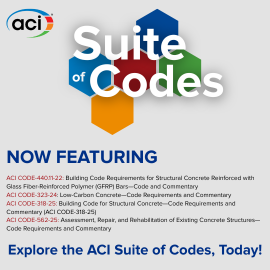
Resources and tips for tornado safety and recovery
As a swarm of deadly tornadoes — one an EF4 tornado, packing winds of 170 miles per hour — touched down in Alabama, Georgia, South Carolina and the Florida Panhandle recently, people should be considering whether their homes and businesses have strong roots as tornado season begins.
An average of 1,000 tornadoes a year hit the United States. While no structure can be 100-percent tornado-proof, it’s critical, especially in tornado-prone areas, to make sure homes and businesses can withstand as much wind as possible. You also want these structures to be resilient, meaning they are able to return to functionality fairly quickly after the event.
Here are some helpful tips from the International Code Council to make sure you are tornado ready.
At the beginning of tornado season in your area:
- Make sure your family has a plan to congregate in a safe place during a storm.
- Warn your children about finding a safe place away from home.
- Store flashlights and extra batteries.
- Clean storm gutters and drains.
- Prepare your home for high winds and rain.
- Repair/replace storm shutters.
- Check your property insurance policy for appropriate coverage.
Before the storm:
- Bring in outdoor objects such as lawn furniture, toys and garden tools. Anchor objects that cannot be brought inside.
- Check/replace emergency supplies and store bottled drinking water.
- Review family emergency plans.
- Secure your home by unplugging appliances and turning off electricity and the main water valve.
During the storm:
- Stay inside in a secure place, away from windows, skylights and glass doors. Listen to a crank- or battery-operated radio for storm progress reports.
- Stay away from electrical equipment and piping that can conduct electricity from lightning.
After the storm:
- Listen for the all-clear from a community siren, or from local radio. Make sure everyone is okay; get emergency help, as needed.
- If you need to leave, avoid flooded roads and watch for washed-out bridges.
- Be careful as you assess the damage in your home, watching for live wires, broken glass, nails and other debris.
- Take pictures of any damage to the house and its contents for insurance claims.
- Check the exterior. Avoid loose or dangling power lines and report them immediately to the power company, police or fire department. The same goes for gas lines.
- Let your insurance company know of any damage. Work only with accredited companies on any repairs. If you suspect a scam, report it to authorities.
Resources for rebuilding communities
The Code Council and its 64,000 members stand ready to help building safety professionals and members in devastated communities with post-disaster building plans reviews, inspections and permit operations through the Emergency Management Assistance Compact. The Code Council also offers a variety of safety and recovery resources, including Tornado Safety & Recovery, which include products and resources from the Code Council and its partners in safety to help communities stay safe in their homes, workplaces and neighborhoods.
Last year, the Code Council Board of Directors created the ICC Ad Hoc Committee on Disaster Assessment to develop a new Disaster Response Alliance in partnership with the National Council of Structural Engineers Associations. Armed with a state-of-the-art database and the latest training resources, this alliance connects skilled volunteers with local, state or federal entities who need skilled, trained and certified building safety professionals to conduct building damage assessments, inspections and other code-related functions in the aftermath of disasters. The Ad-Hoc Committee on Disaster Assessment is also working to educate code officials so they are prepared for a natural disaster, including disaster assessment training, field operation guides and information to deliver to the public. To serve as a disaster response volunteer in the future or to be included in the database, please contact ICC Government Relations Regional Manager Kelly Sadler.
The Code Council’s When Disaster Strikes Institute provides hands-on instruction on assessing damage in the form of activities, case studies and interactive simulations that walk participants through the disaster scenarios; encourages discussion and describes how to complete paperwork. All too often after a disaster, an affected community is left on its own to struggle with assessing its damage and determining whether structures can be re-inhabited. Participants learn techniques on how to become a properly trained second responder and, on completion, can be relied on to assist with performing post-disaster building assessments.






